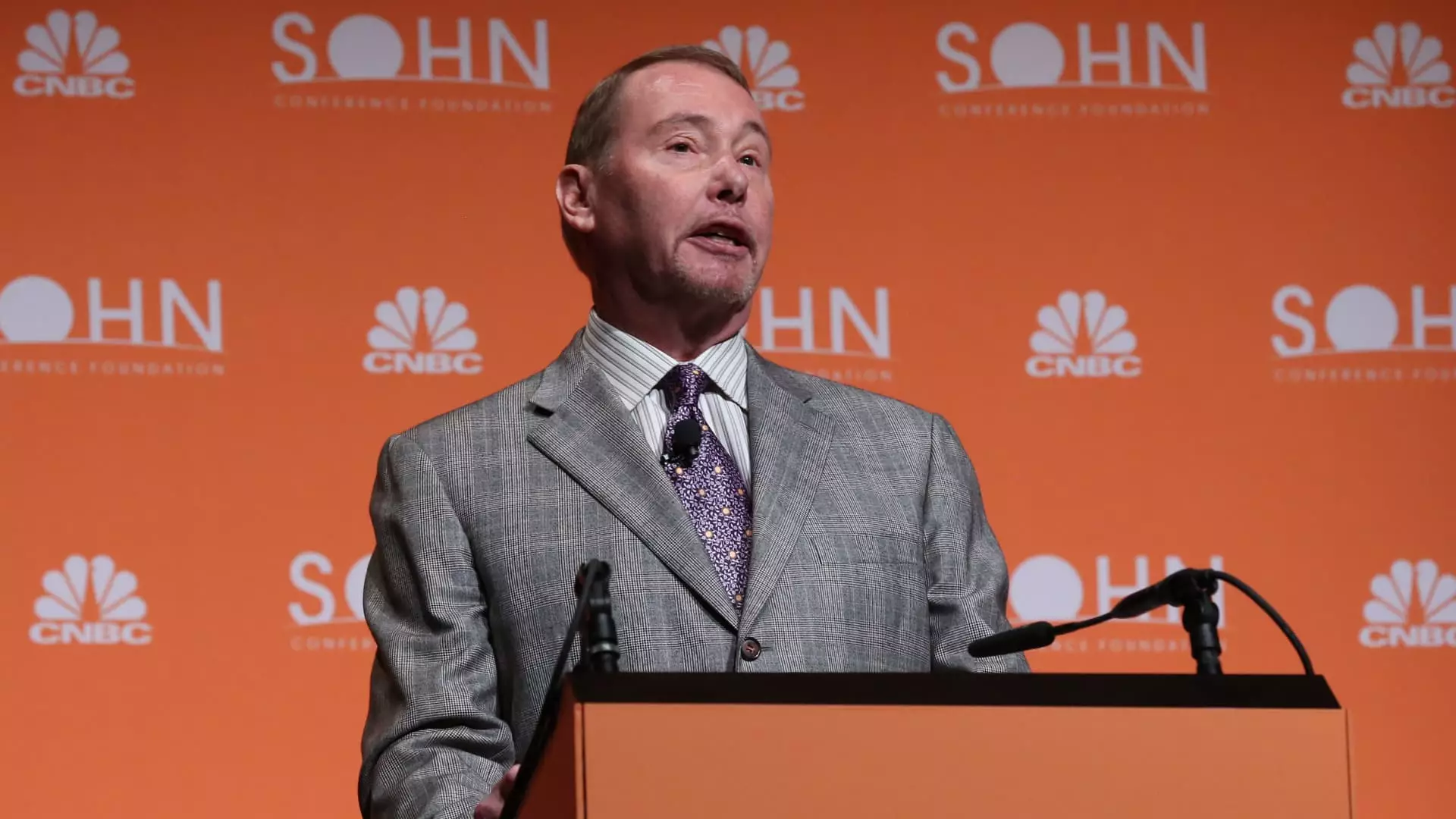As economic indicators and interest rates continue to evolve, investment strategies must adapt accordingly. Recently, the Federal Reserve made headlines by lowering the federal funds rate by a quarter percentage point, bringing it down to a range of 4.25% to 4.50%. This decision came after two days of deliberation and highlights a more conservative approach from the central bank regarding future rate cuts. Jeffrey Gundlach, a prominent figure in fixed income investing, interprets these signals as an indication that investors should focus on increasing their cash positions. The Fed’s revised outlook, which now suggests only two additional rate cuts in 2024 rather than the previously anticipated four, has significant implications for how investors might allocate their resources.
Investors are currently facing a unique landscape where cash-equivalent investments, such as money market funds, are gaining popularity. The Crane 100 Money Fund Index, reflecting the annualized seven-day yield, currently registers at 4.41%. Gundlach strongly believes that this yield is likely to remain stable, making cash not just a safe haven but an attractive option in the current market. His insistence on increasing cash allocations resonates with investors who seek to mitigate risk while still earning a reasonable return. He argues that unlike volatile assets, holding cash equivalents allows investors to avoid significant losses while securing favorable yields.
In a recent press conference, Fed Chair Jerome Powell emphasized the central bank’s commitment to monitoring inflation trends closely before making further adjustments to the policy rate. His remarks underline a cautious stance that may influence investment behavior in the near term. The prolonged low-interest environment has caused a flux in investment strategies, with Wall Street advising investors to diversify away from excessive cash positions and explore longer-duration bonds. However, Gundlach presents a counter-narrative, advocating for sustained investment in cash while exploring fixed-income securities that are less exposed to rate risks.
Despite the prevailing advice from traditional financial advisors, there has been a notable increase in the popularity of money market funds. As of now, these funds hold approximately $6.77 trillion in assets, reflecting a significant uptick—nearly half a trillion more than what was recorded before the Fed’s recent rate cuts. This influx signals a broader investor inclination towards safety and liquidity in uncertain financial conditions. Gundlach’s assessment supports this trend, advising that maintaining around 30% of a portfolio in cash is a prudent move, especially given the minimal yield differences compared to other assets that carry higher volatility and associated risks.
For an optimal investment strategy in today’s financial climate, Gundlach proposes a balanced portfolio allocation: approximately 30% in cash, 50% in bonds, and about 20% in equities. His perspective on fixed income investing is particularly discerning; he recommends avoiding long-dated assets. According to Gundlach, there is no compelling reason to extend beyond a 10-year treasury note, as the additional yield simply does not justify the increased risk. By adopting a lower-duration approach, investors can seek better returns without exposing themselves to the unpredictable shifts often seen at the longer end of the yield curve.
As the economic landscape remains in flux, exploring diverse investment strategies becomes essential for securing financial stability. The insights from Jeffrey Gundlach underline a significant moment for investors: a cautious approach focused on cash positions might be more favorable than a pronounced shift toward bonds or stocks. As always, individual circumstances vary, and the best course of action is one tailored to specific financial goals and risk appetites. Balancing security and yield in a well-diversified portfolio is key to navigating the challenges that lie ahead.

